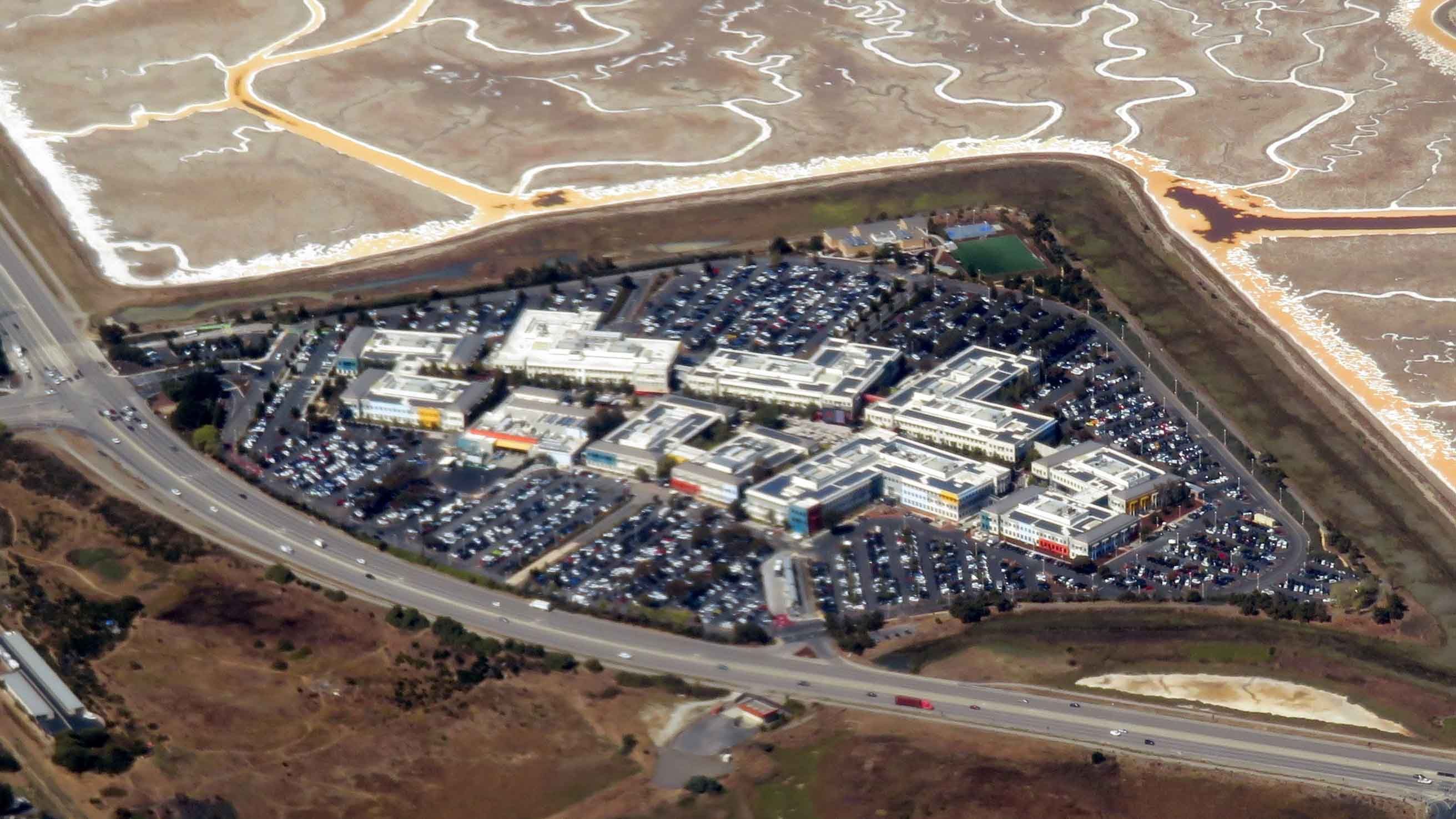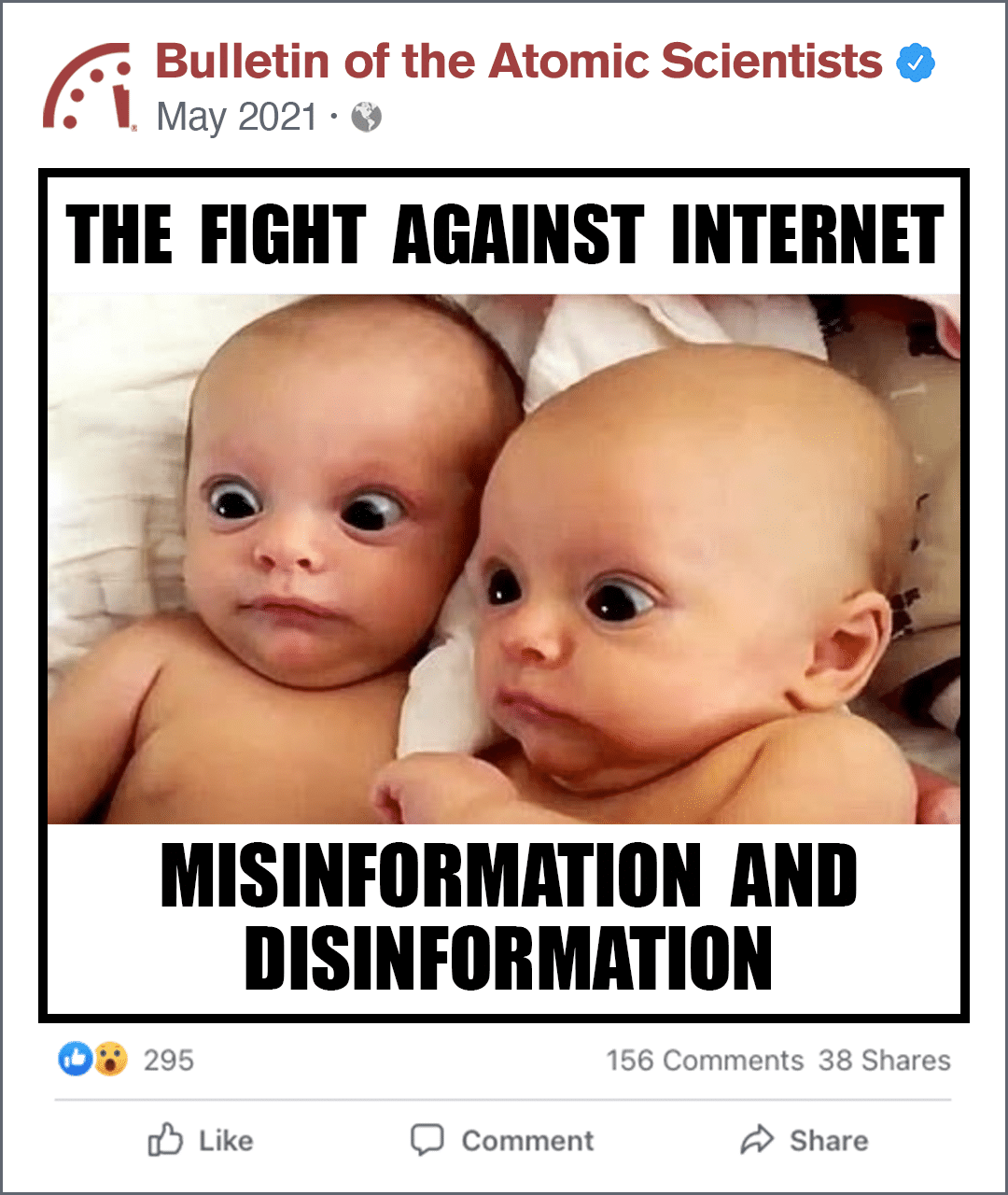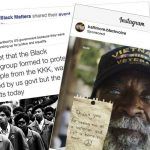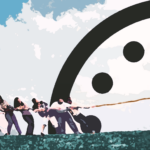Instead of reforming Facebook, should we just build something else?
By Matt Field | May 13, 2021
Instead of reforming Facebook, should we just build something else?
By Matt Field | May 13, 2021
It’s no surprise that in recent years, right-wing extremists, QAnon conspiracy theorists, and Russian intelligence agents have each co-opted social media platforms like Facebook in their quests to undermine elections or spread disinformation. The big social platforms aren’t, first and foremost, designed to promote a well-functioning society.
As the author Shoshana Zuboff, who wrote about a business model she called “surveillance capitalism,” might say, it isn’t the sea shanties, cat pics, or political takes, that keep the lights on in Silicon Valley, it’s the data-sucking engines that hoover up personal information to feed users all those targeted ads for vacations or breakfast bars. But does social media have to work like this? Ethan Zuckerman, a professor at the University of Massachusetts Amherst, thinks the answer is no. The internet pioneer turned professor argues that like the BBC, the public broadcaster in the United Kingdom, neighborhoods, governments, and other groups can purposefully build social media platforms to serve a civic benefit.
Zuckerman heads the university’s Institute for Digital Public Infrastructure, which describes itself as promoting internet services as “public spaces and public goods, not purely as profit-making ventures.” It’s perhaps ironic that Zuckerman once helped develop a deeply hated feature of the digital adverting landscape: the pop-up ad. For that, he is sorry (Zuckerman 2014), and since trying to monetize the personal publishing platform Tripod.com in the 1990s, which he has called a “proto-social network,” Zuckerman has been trying to make the internet better. For starters, he co-founded a citizen-media platform called Global Voices as well as a nonprofit that sends IT support to the developing world (UMass 2021).
Zuckerman now spends a lot of time imagining, building, and promoting a new vision for what he calls digital public infrastructure—a category that includes social media, but that could also encompass search engines and other digital services. These are designed to support civic engagement (Zuckerman 2020). While Zuckerman thinks social media platforms designed under this model could help mitigate problems like disinformation, they might not. “The point of all of this is social media can work a lot of different ways. And honestly, we just haven’t tried most of them.”
I talked with Zuckerman recently about his ideas for civic-minded social media, his technical projects like gobo.social, which will allow users to access all their networks in one place, and his work designing new civic social networks for community newspapers and local governments.
Editor’s note: This interview has been edited for length and clarity.
Matt Field: Tell me about your vision of digital public infrastructure?
Ethan Zuckerman: You don’t necessarily get media that helps us as citizens in a democracy without consciously designing it. The analogy that I end up using is public media. We have seen different examples either in the British model, where public media was really the first broadcast media, or in the US model, where public media came into play once an ecosystem was already pretty mature and started filling some of the holes that were not filled by the market.
In either case, you have media where the explicit goal is, “can we make people better neighbors, better citizens, better participants in democracy by giving them certain types of information and certain types of media experiences?” So my question is: What would it mean to apply that to social media? And the answer is: It’s probably pretty simple. It just looks really different from what everybody else is used to.
You probably need networks to be very small.
The logic of existing social media platforms is that you make more money the bigger you get. You have every incentive in the world to look for a billion users. But we don’t socialize at the scale of a billion users. Once you get into the tens of thousands of people, people behave really weirdly. People riot in stadiums and crush each other. That’s not a size at which humans are really well wired to behave.

How do you pay for this? The answer is: It’s probably not self-sustaining. We need to open up this question of public goods. Maybe the answer is that having public spaces where we can have these conversations is important enough that we want to use taxpayer dollars.
And by the way, taxpayer dollars doesn’t necessarily mean your individual dollars; it could well mean, corporate dollars. So one way to do this is to slap a levy on these free internet businesses that are working with surveillance advertising and use some of the money from that to try to create this new space.
MF: Are we talking about people being on many different small networks built for different purposes?
EZ: Maybe hundreds of thousands of networks run by very small entities. You might imagine one being run by the local coffee shop to create a space for people to interact with one another. You might imagine a town like mine, which has a town meeting style of government, using a social network to have conversations before and after that annual town meeting. You might imagine small support groups or small interest groups.
So no, it is absolutely not PBS rebuilds Facebook. That’s a terrible direction.
The way to think about this is you might have people who are members of dozens of social networks. And it doesn’t feel overwhelming because you’re using a single client, which allows you to access Twitter and Facebook, and then this other dozen social networks.
MF: So I’ll have a social network for my neighborhood, and you’ll have one for yours, and so on and so forth?
EZ: The point of all of this is social media can work a lot of different ways. And honestly, we just haven’t tried most of them.
Front Porch Forum, which is based in Vermont and has mailing lists for pretty much every community in Vermont, is starting to go across the border into some of our neighboring communities in Massachusetts and New York. They have some very interesting rules. Those lists are moderated. They come out once a day. If someone posts something nasty, there’s a decent chance that a moderator is going to email you back and say, “Are you really sure you want to do that?” And there’s a lot of cases where people post something angry and then write to the moderator and say, “I’d like to take that back.”
Very few people have run social networks that are heavily moderated and time delayed. And very few people have decided to start a social network and say, “You know what? I will, over the course of 10 years, cover all of Vermont. Then in year 15, I will creep over the border into New York.”
MF: Can digital public infrastructure like the kind we’ve been talking about solve the problems of disinformation or hate speech on social media?
EZ: I do think it’s going to ameliorate those ills in some cases. I think in some cases, it’s probably going to make them worse. I think when you give people full control over how their communities run, you can end up with some really fringy communities.
I think we’re blaming social media for too much. And I think we’re doing it because we’re hoping for an easy technological fix because the social problems are much more serious.
We’ve just had four-plus years trying very hard to figure out how to combat mis- and disinformation. And the answer is: It’s hard. If we were good at this, you would think that this would be a moment where conspiracy theories would be less powerful. But we just watched the QAnon movement launch and take over a good chunk of the Republican Party. And now we have normalized these non-fact-based narratives to the point where it’s very hard to talk about contemporary American politics without addressing something that at its heart is a lie. It’s not a controversy. It’s a lie. It was not a stolen election.
So we’re barking up the wrong tree. And I just think we should back off a lot of this research and take seriously the real problem that we face which is a much deeper problem of American democracy at this moment.
MF: Wasn’t Twitter’s decision to ban Trump a positive move to reduce the impact of disinformation online?
EZ: What you’re seeing is a shift from platforms essentially believing anyone should be able to say whatever they want until they really, truly cross a line, to platforms saying, “we’re going to think about the public good. We’re going to think about what’s better for society.” What’s better for society is not having vaccine misinformation. So that’s the context that leads up to Donald Trump. And you certainly have Donald Trump, arguably, using social media to praise his followers who have just violently stormed the US Capitol telling them he loves them and that they’re beautiful people. And you can understand why it makes perfect sense for Twitter to pull the plug.
I find the idea that Donald Trump has been silenced to be just the utter and most grievous form of bullshit. This particular trick of Donald Trump hacking the media by saying something ludicrous every single day and having a quarter of the nation’s political reporters focused on Trump’s Twitter feed, I think it’s probably good that we’ve moved away from that. But the idea that he’s somehow in a box or silenced is crazy. He can call up any journalist in the US and any journalist will give him virtually unlimited time.
MF: Does the platforms’ willingness to do what’s in the best interest of society by clamping down on coronavirus misinformation lessen the need for the type of digital public infrastructure you envision?
EZ: Are we better because Facebook is trying to take action against “Plandemic” or these other extreme COVID disinformation campaigns? Yeah, we are. But we’re still in a nanny state at that point.
If my local yoga practitioners’ group is having a fight over whether you can cure COVID by standing on your head, and we ultimately escalate it to Facebook’s moderation team, someone in the Philippines flips through a three-ring binder to decide whether my yoga group conversation is allowable are not. That’s not great. That’s not a great way to run a community.
Social media, particularly this last year, where we’re not interacting in any other spaces, has really let us have those civic muscles atrophy. And we need an enormous amount of work to work those muscles again and return to full participation.
MF: How far along are we in terms of realizing your vision of digital public infrastructure?
EZ: We would hope to be able to announce by the summer funding for maybe the first three years of that project. What [our] project is going to do is really three things. We’re going to take the gobo product—this is something that we started building at MIT. It’s a tool that lets you interact with multiple social networks at the same time. It aggregates your social media into the same place and gives you more control—we’re going to make gobo compatible with a much wider range of social media networks. Right now it supports Twitter and Mastodon and part of Facebook. We’re gonna make it fully featured to support Facebook and LinkedIn and Reddit and a whole bunch of other popular social networks out there.
The real reason we’re doing it is that I’m a firm believer that most novel social networks have failed because they basically ask you to abandon all the rest of your social media. And having something that allows you to belong to a social network that might only have a couple of posts a day, but have it in the same place as Twitter or Facebook, I think that’s going to be really valuable and really important.
[We are going to] start building small-scale social networks with very specific purposes to them. We’re in the early stages of working with a chain of community newspapers in the American Southwest, helping them create spaces around their weekly publication and trying to do something that is more Front Porch Forum and less Nextdoor, but is rooted within the journalism and within the value of a community newspaper.
I’m hoping to work with my UMass colleague, Narges Mahyar, around adding technology to town meetings. She’s already been doing real time in-meeting feedback through various devices. I want to add a discussion period before and after town meeting, so that we can explore this local social network as working on those sorts of issues.
And then finally, the third is sort of advocacy for this broader idea. I’m talking with congressional staffers about what sort of legislative shifts you would need to make these sort of social-networks work. So the third is really, can we build a movement? Can we start people thinking about this idea that maybe fixing Facebook isn’t the best use of their time? Maybe what they should really be doing is imagining a better model for social media.
Together, we make the world safer.
The Bulletin elevates expert voices above the noise. But as an independent nonprofit organization, our operations depend on the support of readers like you. Help us continue to deliver quality journalism that holds leaders accountable. Your support of our work at any level is important. In return, we promise our coverage will be understandable, influential, vigilant, solution-oriented, and fair-minded. Together we can make a difference.





















